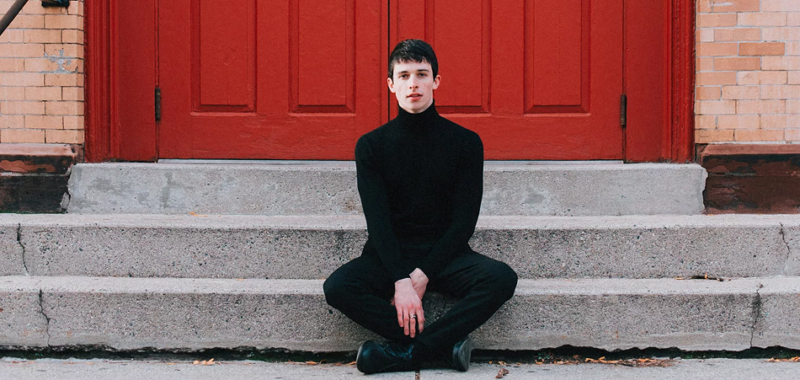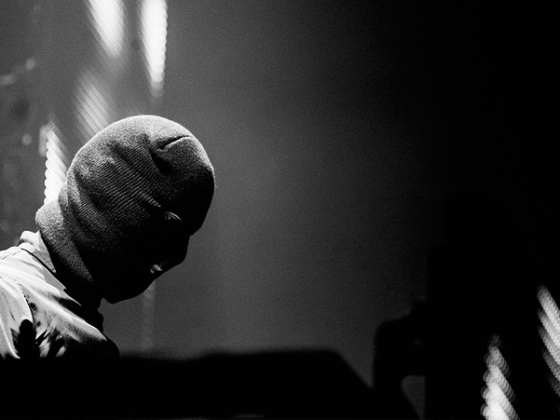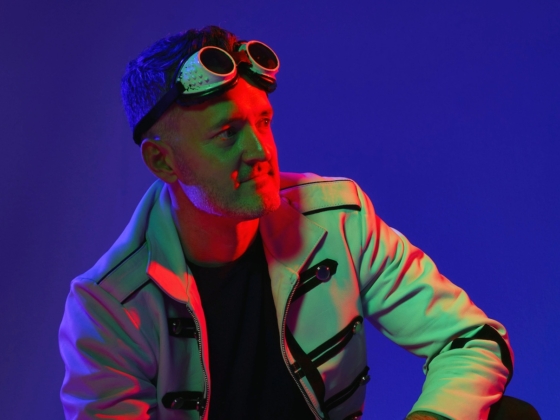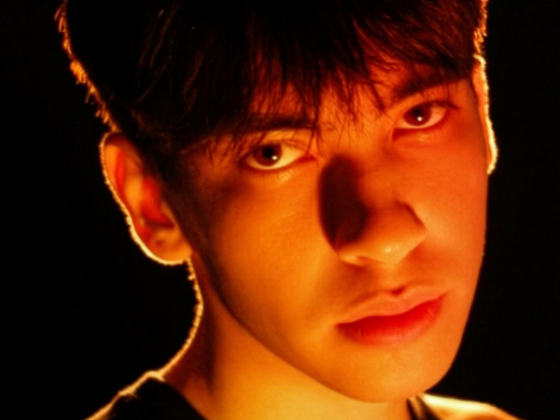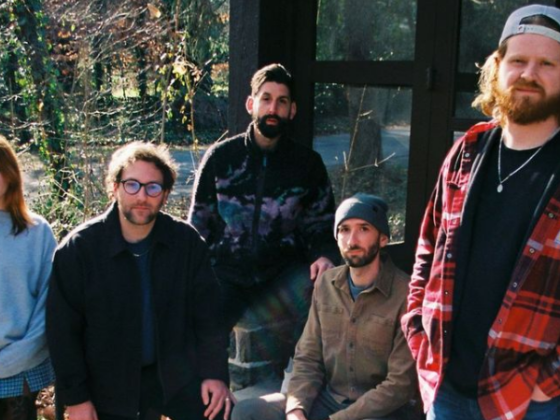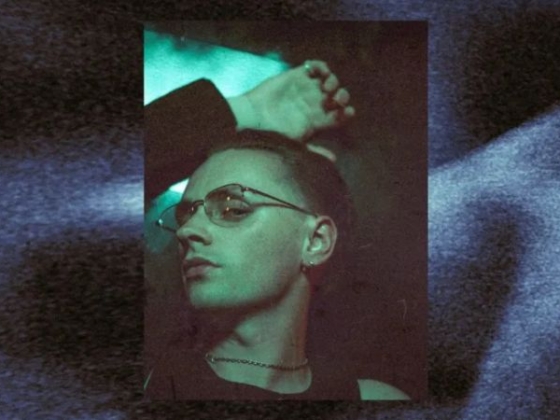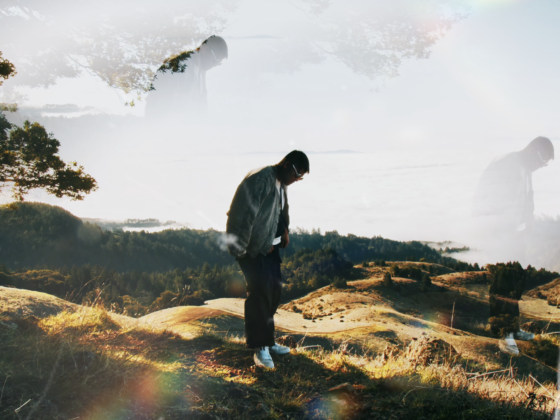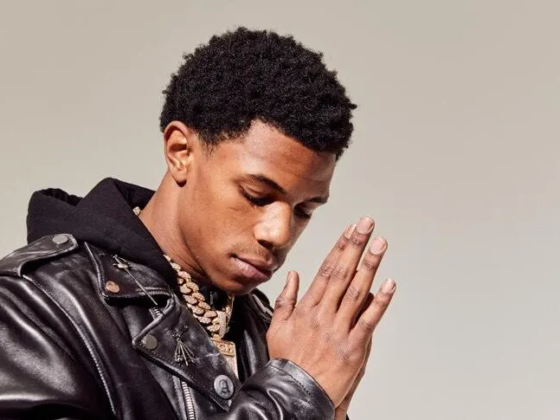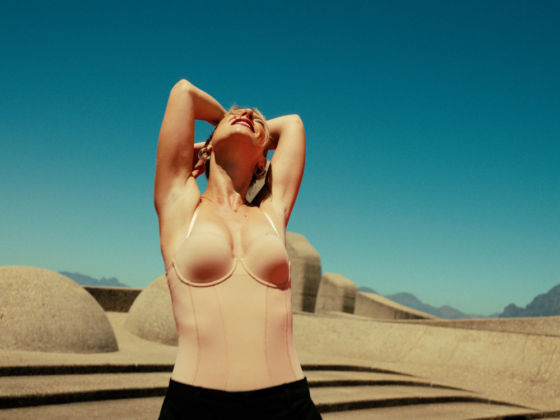Carving out dark, melodic and ethereal takes of electronic bass music, tastemaker Stéphane or otherwise known as Fytch, has spent 2018 grinding away at solidifying his sound and honing his craft. A luminary in experimental sounds within the constantly changing sonic landscape, Fytch is not one to shy away from pivoting his style to whatever he feels is best for the specific vision he holds at any given moment. With the advent of a number of exciting releases, I had the chance to hold a Skype call with Stéphane to talk about his music, his newest release "Saltwater", and his aspirations and hopes for the future.
"Saltwater" is a chilling, atmospheric early 2000's rock-influenced song, reminiscent of the angst of Avenged Sevenfold and emotive narratives of Paramore. Combining his silvery vocals with the heavy hitting drums and punchy lead synths found in the drop of the track, Stéphane puts his undeniable Fytch stamp on the haunting single – and absolutely wows us with his rock-electronica synth meld.
Undeniably, the producer has created a chilling track as a testament to his current music style with absolute ease. If you follow Fytch, you'd know Stéphane is persistently on the move, constantly evolving his sound, pursuing innovation – and it shows with each release he sets forth into the world. Stéphane's consistency in releases doesn't mean monotony or any less of quality – it's obvious that he is passionate and believes in producing the best work (it shows) with a story – a message to convey the tumultuous feelings and events swirling around him.
When asked about "Saltwater", his eyes lit up and with a vigorous fervor, told me that the track itself was a really special one. "It talks about something that I see a lot happening today and obviously I don't want to target specific people but [someone like] the American president – where a lot of promises are made, a lot of things were said but we don't get any of that…The things that are said are almost a front for what's happening behind the scenes."
Stéphane's message is audibly exhibited in the tonal rises and falls within a song, and it's also clear his inherent motivation is to really bring back the truth – the honesty, the integrity and the authenticity we long for in a world ravaged by political agendas and socio-economic standards, through his music. For example, in the second verse in which he says, "what's not real must go". he is portraying that idea – his message of coming back to what is real and what is the truth. For Stéphane, it's evident he feels strongly about this and it's incredibly scary to him that we live in a time where even the truth can be questioned, and even the truth can be 'the not truth' just because someone says it or not – he craves and believes in authenticity.
While "Saltwater" reminds me of his collaboration track "Toxin" with REZZ, it essentially is a turning point in his musical career. The new direction in sound, is a realized understanding of his own taste and what he wanted to do – his purpose with his music and what it means to really put even more into something he finds personally meaningful and fulfilling. The rock influences – the guitar, the distorted vocals, are all a quintessential part. Growing up with Red Hot Chilli Peppers as he rummaged through musical styles, allowed Stéphane to really take in the sound of rock.
"I think subconsciously, it's that kind of sound – that guitar-driven, melodic, energetic sound, has really come out in my music. Even bands like Paramore, who I don't actively listen to, really influenced my sound by hearing it. My girlfriend's really into rock and by osmosis comes into my music. It's really found its place in the electronic part of my music." If you take any electronic part of Stéphane's music out of the box, you'd also realize it always sounds a bit like rock, always retaining a grungy, eclectic feel. It is not a surprise then, given he is a recent graduate of the esteemed Berklee College of Music, that Stéphane vehemently vies for an even more holistic music production experience – to really expand the performance side of his work. Coming from a musical background, Stéphane wasn't used to being a DJ. Thus, as he begins to get ready to get on the road, he's going to start with a hybrid set up where he's DJ-ing and doing some vocals live. We both agree that adding a live aspect in a show, really helps one stand out amongst the masses, and really adds the touch of authenticity he stands for.
"These latest songs…."Promise", "Toxin" – they all have this kind of song element, giving me an opportunity to expand into the performance world and basically focus on the performance aspect of things. Singing songs, playing the guitar, really have more of a show around it, instead of mixing my songs in and out which I'm going to be doing for now, but will change as I go."
For Stéphane, music indeed has been his whole life and I was curious to see why the guitar was such a huge and important aspect of many of his tracks. Laughing, he revealed that his mom, placed a classical guitar in his hands at the ripe young age of five years old, ultimately kickstarting his passion for the world of music. He began classical guitar lessons in Paris and even when he moved to the Netherlands and pivoted to learning the piano, he was only ever really exposed to classical music.
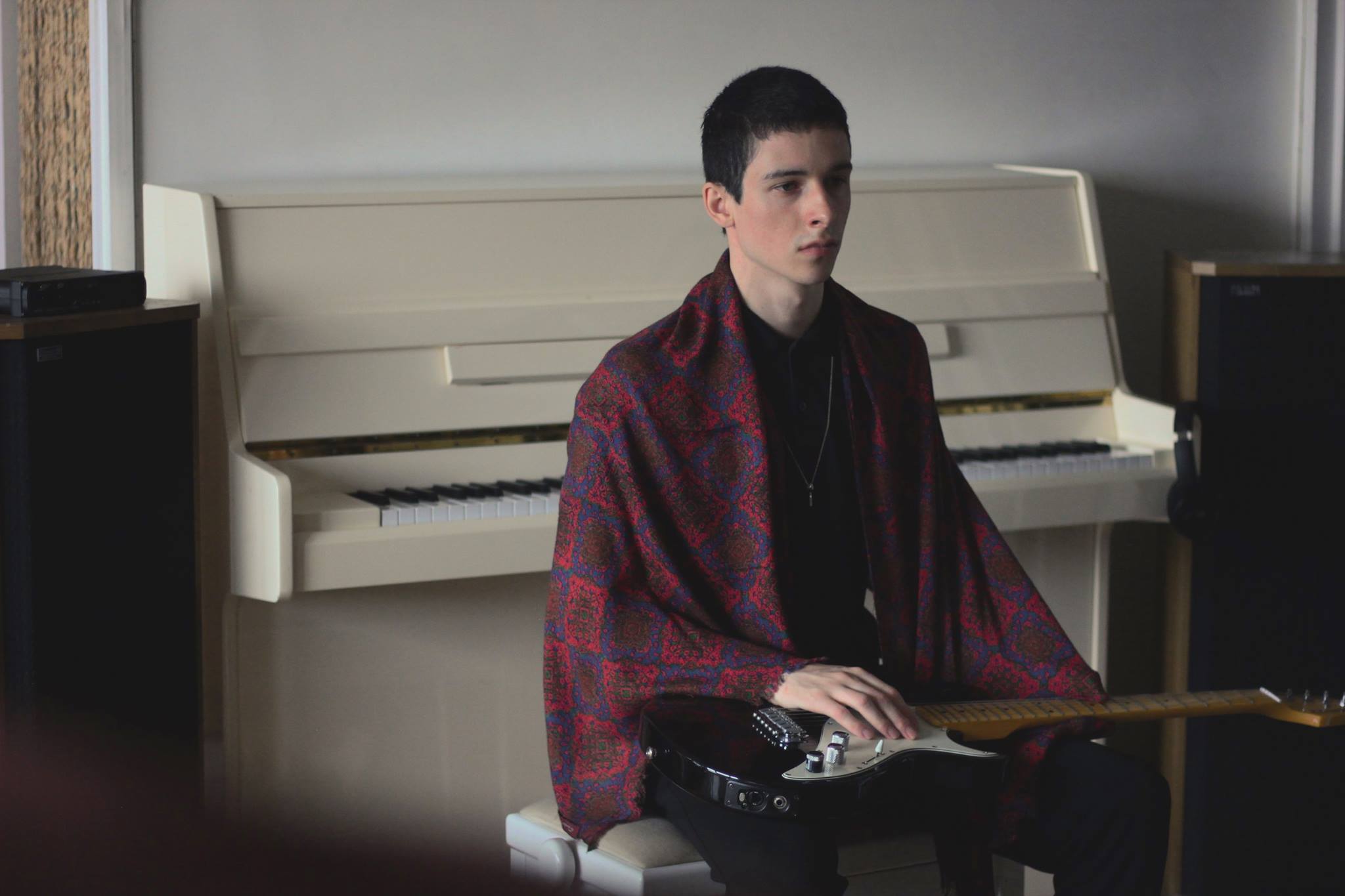
It was at the age of 14, when he became acquainted with electronic music. Friends started playing dubstep and it was intriguing to him. "My whole life I had been in a little box where I was having a lot of fun, and got really good at classical because I spent so much time by myself composing for it, playing it, learning about it," Stéphane exclaims, "I instantly was obsessed." His refreshing candor in expressing his awe was infatuating, and I reveled in his evident passion.
"When I saw these kids who were on their computers, who were basically making a whole arrangement – it was almost like you had a whole orchestra there rather than just being stuck with the violin; you could choose to make the bass louder here, add more cello in that part – it was nuts to me. It was like a video game that had a no real kind of end, and had a real-life effect on things," he marveled. "To me, that was the real transition of it – being curious about it at 14, starting to dabble in it, casually uploading it online and honestly not with any kind of strategy or anything. It was at that time where this kind of stuff was blowing up and people picked it up. I was doing bootleg remixes of songs, finding acapellas online and then honestly, as that became more serious, I started to consider it as a path for myself."
Frankly, it's awe-inspiring to hear Stéphane's journey, his growth and his experiments in sound, lead to a successful career. His excitement of production stems from this transition, and really being able to craft art outside of the box; he now had the power to create new instruments and could decide what notes to play without limitation. In other words, instead of having a guitar and deciding what he was going to play with those notes, he could now say "what does the guitar or instrument sound like?" first and then create it – essentially adding a whole new layer and depth to it. The guitar, however, remains significant and is pivotal in how he begins the writing process.
As he's learned more, Stéphane began hearing things by reducing it down the basic chords, the notes that are in it and eventually, could see the whole song from the key things. He'd write a guitar part and then the vocal part that contains everything that the song would contain – what he calls 'the seed'. When he then goes into the actual software, Stéphane would already know how the song is supposed to sound, where the notes are, where the harmonies are – it's then just about finding the right sounds to put everything in the right light.
With his vivid explanation of production and his processes, I decided to inquire more about the beginnings of his electronic music, and really dive in to his inspirations. What was his turning point? What song made the hidden electronic music fan in him, tick and climb out? To my joy, Stéphane revealed it was remix of "Cracks" by Flux Pavilion, an utter 2010 classic.
"When I first heard (Flux Pavilion Remix – "Cracks") I was like, "oh man there are so many possibilities here", and then that's when I really realized people aren't even scratching the surface of what we can do with this stuff."
This was undeniably true and Stéphane took it upon himself to really dive deeper into the possibilities. His lived experiences of classical melded into electronica, the juxtaposition of traditional and contemporary, revealed a new form of musical opportunity as an evolving artist, setting the tone for his early tracks. Now, he credits producers like Hex Cougar, as sources of inspiration in taking a forward-thinking approach to music. Thus, Stéphane doesn't put himself in any specific category of music except labeling his tracks under 'electronic'.
"Where does electronic stand in relation to music and other genres, where does my music stand? My music has changed, my approach has changed, it's really been a year of recalibrating. How I see it, how it feels, where it's going…I don't define myself as one genre."
Taking a look at his released tracks, one genre could not possibly be pinpointed and by producing varying genres, Stéphane does not place a limit on himself on what he can create. Elaborating, he dictates that by staying in one genre, it becomes all the more complicated – nonsensical to someone who strives to be the best possible creative. Everything that he has learned, is essentially always about putting the music first – what is the music trying to say, what is its message? What is the energy that you're trying to put out to the music – not "what BPM should I set my music to?"
Stéphane then is indeed one of the few in a world of producers who tend to play within one genre, going out of the safe zone for a chance to innovate whilst consistently release your best work. For him, doing so what a good choice in the long run and helped him avoid being placed in a box. "So many producers get stuck playing one genre because that's what their fans want, giving them no chance to grow or switch styles, and that's such a tricky situation. And what saved me was always making a lot of different styles of music, and never be labeled too specifically within one thing. Because if you have a lot of different things and people have a hard time putting a finger on what category it is, then they can't hold you hostage to one thing. My music has always been developing, always been changing over time and it will continue to."
Now, as he leans back into the couch, Stéphane seems confident that his varying style of music, will carry him far into the future. With tour dates lined up, Stéphane plans to fine-tune the performance aspect he seeks to carve out for himself, and reveals that his next step would be to compile and release his first album and establish what he wants to do – a clear-cut idea of what this is really about.
"Vision in the long run? I'm definitely looking to start my own label. I've been working with producers that are coming up, sending me their demos. I really love working with other people on music – cooperating, collaborating. You get into a certain state, where everyone is thinking of music, everyone's in a certain place and I love being there. And I think by starting a label down the line, I think it would a great way to continue working in that way, developing artists and putting out music that I really believe in."
Of course, I had to ask if Stéphane had any inkling of an idea what his label would be called. Gracefully, he revealed to me that he had already picked out a name: ISOM. What it stands for is still a secret, but for now, Stéphane will continue to create under the Fytch name, and pursue his overarching goal of crafting beautiful, relatable music.
Connect with Fytch: SoundCloud | Facebook | Twitter | Instagram

